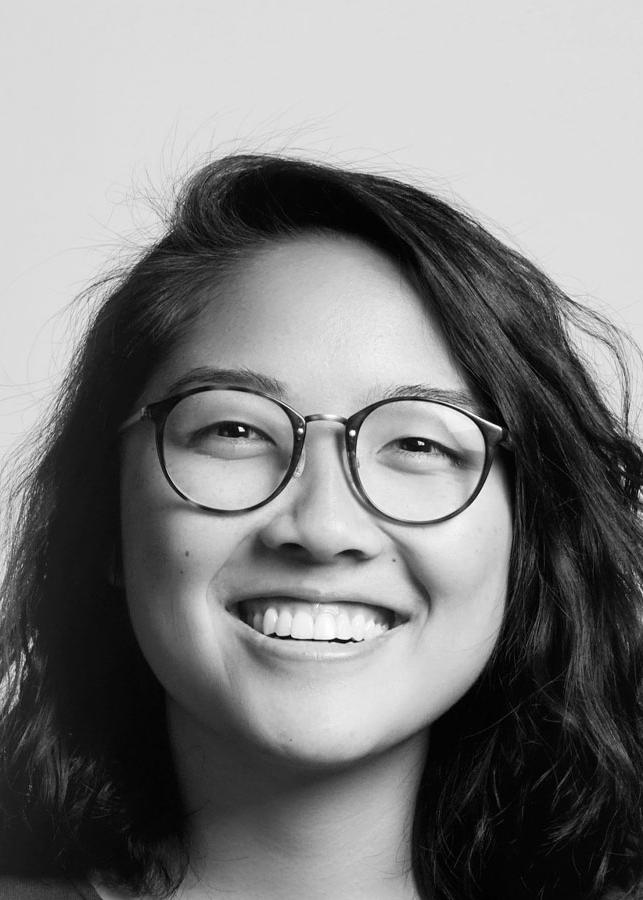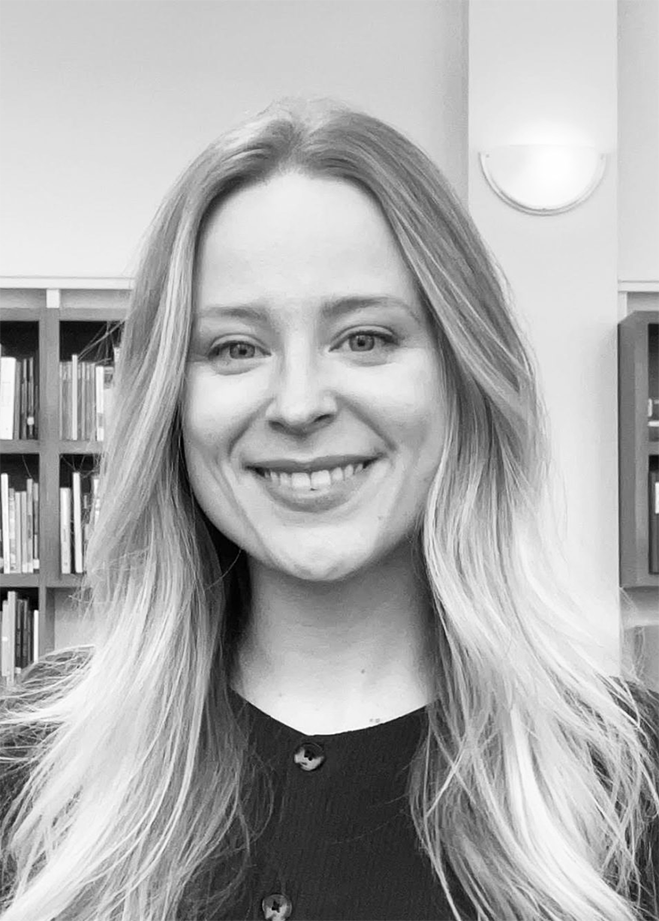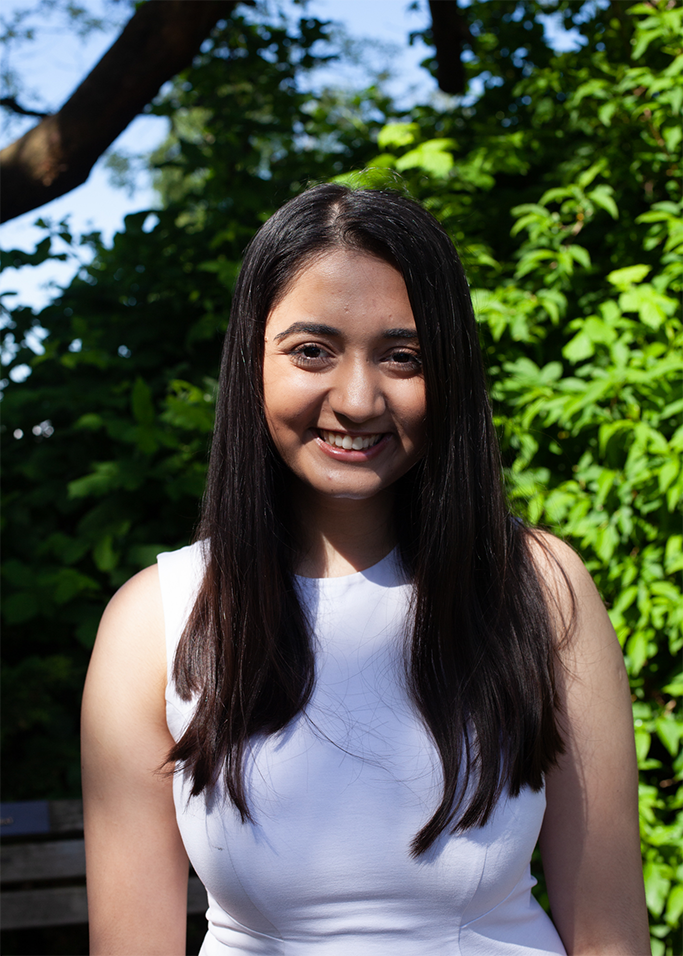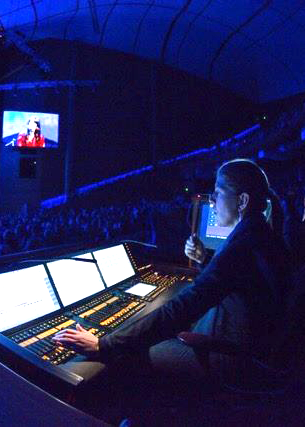Kat Jayme
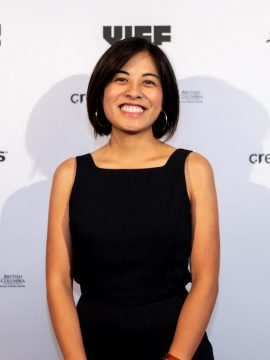
Kathleen Jayme is an award winning filmmaker based in Vancouver, who is passionate about telling meaningful and personal stories. After graduating with her BFA in 2011, Kathleen worked at the National Film Board of Canada (NFB) where she coordinated and oversaw over thirty documentaries, animations, and digital projects through all stages of production. While working at the NFB she completed Paradise Island (2015) which was nominated for two Leos and screened at the 2015 Cannes Short Film Corner. Her latest project, Finding Big Country (2018), has been screening to sold-out theatres across North America, and won the prestigious Audience Choice Award at VIFF 2018.
In a phone interview, Kathleen discusses her documentary filmmaking career, and shares the crucial role that UBC alumni played in her success.
Why did you choose to study film production at UBC?
When I was in high school I always had a camera in my hand. I was always that friend that would tell people to “do that again,” and I would make movies for our school to watch as part of student council. I knew I wanted a degree, and combining that with my passion for filmmaking was a dream.
What did you enjoy the most about it?
Getting the opportunity to direct my two first short films, and the classmates I ended up collaborating with. To always have a group of peers that I can lean on and who I know will be there for me and vice versa, that’s one of the greatest things about going to film school. That, and UBC alumni definitely played a pivotal role in my career. We have such a great roster of filmmakers who graduated from UBC.
In my first year they started a mentorship program. They got alumni to be our mentors, and luckily I was partnered with a filmmaker named Nimisha Mukerji (BFA ’06). She was working on her first feature film called 65_RedRoses and I got a great sneak peek into the making of it. We went out for lunch and I got to pick her brain, it was such a great opportunity. She’s someone I still call now, years later, when I need to ask questions about a contract, when I need advice. Nimisha is the first person I go to, she’s always been super supportive.
How did you find your voice as a filmmaker, and how did you decide you wanted to specialize in documentary filmmaking?
I’m such a memory hoarder, my friends say the only reason they have memories is because I document everything. My grandpa was a filmmaker and he documented everything in my life and my cousins’ lives as well, so it just came naturally to me. I still love fiction filmmaking and telling those stories, they’re so powerful, but I’m fascinated with how beautiful real life is and wanting to capture every moment. Even if it’s nothing special, to me it’s still worth capturing, so that’s why I naturally lean more towards documentary than fiction.
What have you been up to since you graduated?
As soon as I graduated I was working full time at a coffee shop, earning money to shoot Paradise Island (2015), and applying for a grant at the National Film Board of Canada. I sent the grant proposal to my friend Mackenzie (BFA’12) who was the documentary guy in his year, and he sent an email back saying “I love it, I want to shoot this.” I was super excited because Mackenzie is super talented, and to have a great creative partner when you’re making films is crucial. So he and I spend two weeks in the Philippines shooting.
When I was at UBC I got an internship at the National Film Board of Canada, which helped me get another, this time a paid internship, when we got back. It was only supposed to last three months but I was so lucky that at the time they were going through a restructuring of the organization. A production coordinator position opened up and they gave me the job.
I was loving my time there and so I kept extending my contract. One year became two years and two years became three. Then I started to realize that I was spending more time working on other people’s films than my own. I still wanted to make my films, but it was terrifying because I had a stable job, and benefits, and was working on meaningful stuff. I was getting afraid of the fact that I wouldn’t leave. One day Mina Shum (BA ’88), another UBC alumni, told me “You’ll leave when it’s scarier to stay than it is to jump,” and she was so right. Shortly after that I woke up one day and thought, “It’s time, I’m ready to jump, and I’m ready to fail if that needs to happen. I just need to try it.”
In 2016, I resigned and went full steam ahead with Finding Big Country (2018). After one or two years of pitching I finally landed funding with TELUS STORYHIVE and shot that film. It did really well and it’s opened so many doors for me.
What do you enjoy the most about being a filmmaker?
There’s so much that I love, but being able to go on adventures is probably the most exciting thing. Being able to chase a story just because you’re passionate, or interested, or curious. It’s such a privilege, and such an exciting feeling. Being able to travel to a place you never thought you’d be going to, being able to speak to people you never thought you’d be speaking to. For example, in Finding Big Country (2018) I got to speak to many of my childhood heroes, and having the privilege and the honor of having that type of access into certain scenarios and people’s lives is really a special thing.
What advice would you give to current students and alumni looking to break into the film industry?
You’re going to have to be self-motivated, especially after you graduate. The first year out of university, it’s the first time no one tells you what to do. You’re the one who has to pick up the phone and find opportunities for yourself. And when you do get those opportunities you have to work hard. You have to be your biggest salesperson and motivator, but good things will happen when you put yourself out there.
I’d also say try meet as many people as you can, and work on as many of your classmates’ film sets as possible. Learning how to collaborate with people who have their own ideas, and being able to listen to them and bring everyone’s ideas and strengths to the table is one of the most important things that I learned in film school. And if you can learn how to do that with your class you’ll be set up for after you graduate.
Kat Jayme



Kathleen Jayme is an award winning filmmaker based in Vancouver, who is passionate about telling meaningful and personal stories. After graduating with her BFA in 2011, Kathleen worked at the National Film Board of Canada (NFB) where she coordinated and oversaw over thirty documentaries, animations, and digital projects through all stages of production. While working at the NFB she completed Paradise Island (2015) which was nominated for two Leos and screened at the 2015 Cannes Short Film Corner. Her latest project, Finding Big Country (2018), has been screening to sold-out theatres across North America, and won the prestigious Audience Choice Award at VIFF 2018.
In a phone interview, Kathleen discusses her documentary filmmaking career, and shares the crucial role that UBC alumni played in her success.
Why did you choose to study film production at UBC?
When I was in high school I always had a camera in my hand. I was always that friend that would tell people to “do that again,” and I would make movies for our school to watch as part of student council. I knew I wanted a degree, and combining that with my passion for filmmaking was a dream.
What did you enjoy the most about it?
Getting the opportunity to direct my two first short films, and the classmates I ended up collaborating with. To always have a group of peers that I can lean on and who I know will be there for me and vice versa, that’s one of the greatest things about going to film school. That, and UBC alumni definitely played a pivotal role in my career. We have such a great roster of filmmakers who graduated from UBC.
In my first year they started a mentorship program. They got alumni to be our mentors, and luckily I was partnered with a filmmaker named Nimisha Mukerji (BFA ’06). She was working on her first feature film called 65_RedRoses and I got a great sneak peek into the making of it. We went out for lunch and I got to pick her brain, it was such a great opportunity. She’s someone I still call now, years later, when I need to ask questions about a contract, when I need advice. Nimisha is the first person I go to, she’s always been super supportive.
How did you find your voice as a filmmaker, and how did you decide you wanted to specialize in documentary filmmaking?
I’m such a memory hoarder, my friends say the only reason they have memories is because I document everything. My grandpa was a filmmaker and he documented everything in my life and my cousins’ lives as well, so it just came naturally to me. I still love fiction filmmaking and telling those stories, they’re so powerful, but I’m fascinated with how beautiful real life is and wanting to capture every moment. Even if it’s nothing special, to me it’s still worth capturing, so that’s why I naturally lean more towards documentary than fiction.
What have you been up to since you graduated?
As soon as I graduated I was working full time at a coffee shop, earning money to shoot Paradise Island (2015), and applying for a grant at the National Film Board of Canada. I sent the grant proposal to my friend Mackenzie (BFA’12) who was the documentary guy in his year, and he sent an email back saying “I love it, I want to shoot this.” I was super excited because Mackenzie is super talented, and to have a great creative partner when you’re making films is crucial. So he and I spend two weeks in the Philippines shooting.
When I was at UBC I got an internship at the National Film Board of Canada, which helped me get another, this time a paid internship, when we got back. It was only supposed to last three months but I was so lucky that at the time they were going through a restructuring of the organization. A production coordinator position opened up and they gave me the job.
I was loving my time there and so I kept extending my contract. One year became two years and two years became three. Then I started to realize that I was spending more time working on other people’s films than my own. I still wanted to make my films, but it was terrifying because I had a stable job, and benefits, and was working on meaningful stuff. I was getting afraid of the fact that I wouldn’t leave. One day Mina Shum (BA ’88), another UBC alumni, told me “You’ll leave when it’s scarier to stay than it is to jump,” and she was so right. Shortly after that I woke up one day and thought, “It’s time, I’m ready to jump, and I’m ready to fail if that needs to happen. I just need to try it.”
In 2016, I resigned and went full steam ahead with Finding Big Country (2018). After one or two years of pitching I finally landed funding with TELUS STORYHIVE and shot that film. It did really well and it’s opened so many doors for me.
What do you enjoy the most about being a filmmaker?
There’s so much that I love, but being able to go on adventures is probably the most exciting thing. Being able to chase a story just because you’re passionate, or interested, or curious. It’s such a privilege, and such an exciting feeling. Being able to travel to a place you never thought you’d be going to, being able to speak to people you never thought you’d be speaking to. For example, in Finding Big Country (2018) I got to speak to many of my childhood heroes, and having the privilege and the honor of having that type of access into certain scenarios and people’s lives is really a special thing.
What advice would you give to current students and alumni looking to break into the film industry?
You’re going to have to be self-motivated, especially after you graduate. The first year out of university, it’s the first time no one tells you what to do. You’re the one who has to pick up the phone and find opportunities for yourself. And when you do get those opportunities you have to work hard. You have to be your biggest salesperson and motivator, but good things will happen when you put yourself out there.
I’d also say try meet as many people as you can, and work on as many of your classmates’ film sets as possible. Learning how to collaborate with people who have their own ideas, and being able to listen to them and bring everyone’s ideas and strengths to the table is one of the most important things that I learned in film school. And if you can learn how to do that with your class you’ll be set up for after you graduate.
